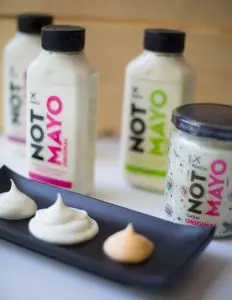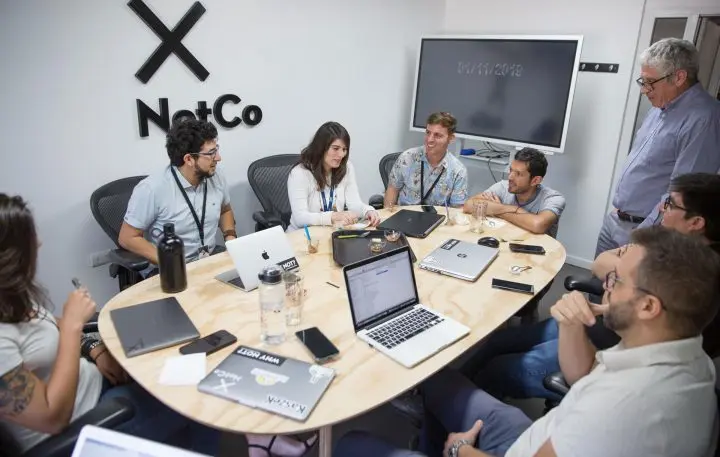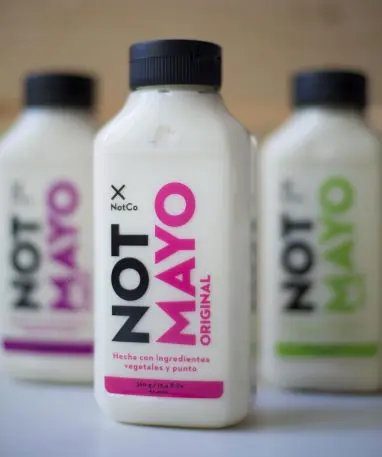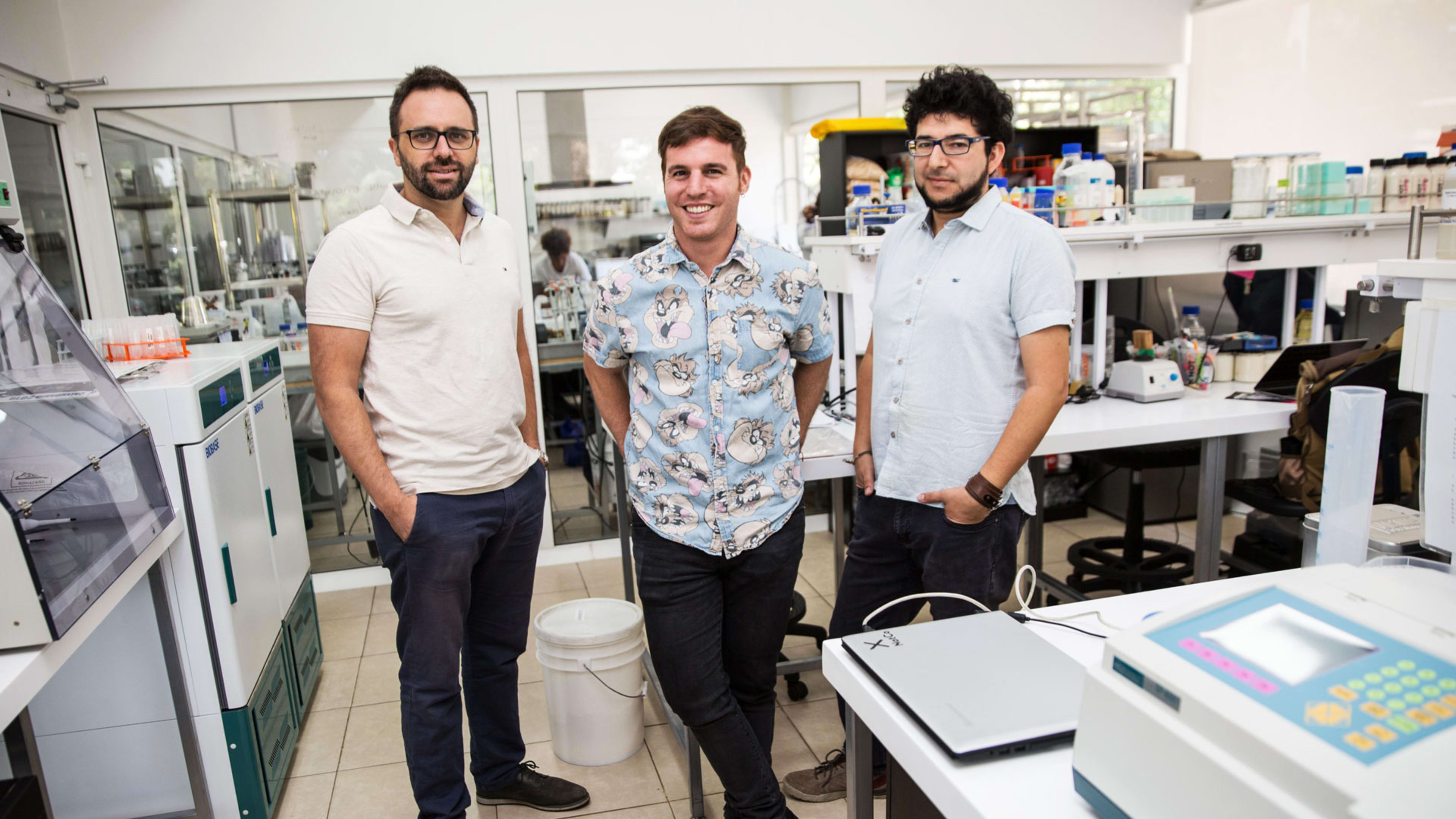Santiago, Chile is over 6,000 miles and five time zones from Seattle with no direct flights, and in a part of the world that American technology investors and tech media have long neglected. So how do entrepreneurs there get the attention of Jeff Bezos?
Mayonnaise.
That’s right, mayo. Amid a booming and sometimes delirious food technology market that Bezos helped ignite through Amazon’s acquisitions in recent years, three Chilean entrepreneurs discovered that their country has a secret ingredient—mayonnaise— that could be an asset for them. That in part explains why last week they closed a new round of financing that included millions of dollars from Bezos Expeditions, the family office investment arm of the Amazon founder, its first investment in the region. Amazon has struggled in its efforts to expand in Latin America due to competition from local retailers and only now is trying to grow in Brazil after years of setbacks.

That rapid expansion, in part, drove the interest from Bezos Expeditions, Muchnick says, noting that it was drawn to the startup’s ability to scale.
The Latin America startup scene is far more developed than it was a decade ago and a small group of U.S. investors has remained active throughout, but the region still boasts few young companies that have made it globally.
In winning the attention of Bezos, NotCo could be providing a sort of template for other global entrepreneurs. Start local, gain traction and revenue in one product area in which you can succeed, partner with quality early-stage investors, and then expand quickly.
The new funding round totaled $30 million and was led by The Craftory, a London-based self-described counter-culture investment firm that is cause-based and which put in a majority of the capital. Earlier investors, including Buenos Aires-based Kaszek Ventures and IndieBio, also joined in the round.
From the lab to Wal-Mart
For Bezos Expeditions, it was its first known investment in a Latin American startup, according to research firm CB Insights, which tracks global technology investments. Melinda Lewison, in charge of investments for Bezos Expeditions, did not return multiple emails sent to her over several days.
NotCo first experimented with chocolate but then decided to make their first product an alternative to mayonnaise called NotMayo, which they make from garbanzo beans. Since Chileans love mayo, their home country served as an effective laboratory whether the company could gain any traction.
They began selling in Chile in March of 2017 according to Mr. Muchnik and as of today have NotMayo on the shelves in 1000 stories nationwide including Wal-Mart.
“We already have 10 percent market share,” NotCo.’s chief executive said.

Innovative food products have gone mainstream in recent years, with Tyson and General Mills both backing Beyond Meat, which makes plant-based burgers and chicken strips and is eyeing an initial public offering this year. “This would be the first I.P.O. of a VC-backed food startup in the U.S.,” said a recent report from CB Insights.
“Plant protein has gained momentum over the past several years and will be a necessary trend in 2019,” noted the report. CB Insights values the plant protein market at $11 billion.
Between Whole Foods, Amazon Go, and a new chain of stores recently described by the Wall Street Journal, Bezos and his executives need new private label products that can scale. NotCo expects to get into discussions with Whole Foods, said its chief executive.
Of course, the market for food companies can easily sour—and a prominent mayonnaise company, Hampton Creek, was emblematic of that, stumbling through scandals and government investigations into its practices in 2016 and 2017.
How to create a better mayo
How will NotCo avoid a similar fate? Mr. Muchnik points to the expertise of his other co-founders: Pablo Zamora, a Ph.D in biotechnology specializing in plant biology, who also did a post-doc at U.C. Davis in plant genetics, and Karim Pichara, a Ph.D in computer science.
Their computer technology “basically breaks down molecular composition of any food,” says Elio Leoni Sceti, co-founder of The Craftory, and “on the other side, they understand the molecular composition of plants.”

Kaszek’s founding partners, Hernan Kazah and Nicolas Szekasy, helped build Latin America e-commerce giant MercadoLibre amid the Argentine recession of the early 2000s then took it public on the Nasdaq in 2007. Mr. Kazah was a co-founder and Mr. Szekasy was its chief financial officer. They also raised Kaszek’s last two funds during Brazil’s worst economic recession in modern history—roughly two-thirds of their investments are in Brazil–and in each case exceeding the size of the prior fund and taking less time to fundraise.
Szekasy claims that out of 43 companies their first two funds backed, 37 of them raised money from new investors in subsequent rounds. For example, Kaszek, together with Sequoia Capital, was the first investor in Brazilian fin-tech company Nubank, the New York Times reported in 2013. (Nubank was one of Fast Company‘s Most Innovative Companies this year. For its part, Kaszek was named one of South America’s Most Innovative Companies by Fast Company in 2013.)
This story has been updated.
Recognize your brand’s excellence by applying to this year’s Brands That Matter Awards before the early-rate deadline, May 3.
